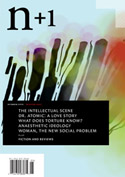The second part of Bo Burlingham’s three-part series on Kepler’s appears in the March issue of Inc. magazine. Burlingham recounts the struggles that Anne Banta, Clark Kepler, et al have had over the past year or so after the store reopened in October 2005. It seems that Banta has finally come to some conclusions that she should have reached a long time ago. She’s quoted, “I feel hopeful about how it’s going. But the idea of people from high tech coming in to save the day—it was so naive to think that we could. We have to find other people who know the industry–an advisory board or something. If we can tap into some industry experts, it would make a big difference.”
The only problem here is that the sort of industry experts she seeks out are people like Michael Hoynes, who recommend diversifying product lines, targeting the store to families, and other marketing nonsense that has nothing to do with books or how to reach people who care about books and are willing to spend money on them.
In September of 2005, I wrote a letter to the San Jose Mercury News criticizing the composition of Kepler’s board of directors and suggested that they include someone from the literary community on the board. They still have not done this. (You can read the letter reprinted below, if you click on the “more” link.)
Burlingham’s article definitely provides some hope that the store is on the right track and that Banta and Kepler have finally realized that the store can’t be everything to everyone—that it needs focus, and having focus inevitably means alienating some people. At one point in the article, Burlingham quotes Banta when she exclaims, “But I don’t know what we want [the store] to be!”
I obviously love the store quite a bit. I still buy most of my books there—about 100 a year. I claim at least some responsibility for the store’s revival, and yet I also understand that in order to reshape itself to survive, Kepler’s may, in fact, alienate me. I sure hope they don’t, that they beef up their literary fiction section, stop cutting back on periodicals, and find some way to finance doing so. If that means selling ridiculous games and diaries and DVDs and Christmas cards, then so be it. But I think they still need to figure out a) How are we going to make money? and b) What are we going to invest that money in? What is going to give us the greatest return? And what is going to be of long-term, literary value to our customers? This is a decision that you can only make with strong leadership and leaders who are interested in books and business. When I used to travel more and visit new bookstores on a regular basis, I had two tests for whether the store was good or not: 1. Did they stock all books by F. Scott Fitzgerald? (He died at 44, after all, and only has about a dozen books.) and 2. Do they have The Recognitions by William Gaddis. Fail both, and you’re out of the running. Those tests have not changed in years, and I don’t expect them to.
On a final note, the article mentions setting trackable benchmarks for the staff, which I completely agree with, but the question is this: Can a metrics-driven business model be compatible with an art form that is not. Seriously, if the literary business was entirely driven by sales, we would have only be able to choose a bunch of crappy best-selling novels by John Grisham, Michael Crichton, et al.
As Banta had come to realize, Kepler would have to learn an entirely different management style if the company were to be turned around and set up to last for another 50 years–the goal set by Méndez and the board. He would have to put managers in place, give them real responsibilities, and hold them accountable. He would have to commit to a plan with realistic projections, quantified goals, and specific benchmarks. Banta and her colleagues had already identified the key areas to concentrate on. They were the six imperatives that made up her “bubbles of focus.” The first bubble was the core: doing the things that defined Kepler’s mission of being the local area’s community and cultural destination. The second: sell more effectively to current customers. The third: expand and diversify the customer base. The fourth: expand and diversify the store’s product line. The fifth: develop an employee culture of empowerment with total customer focus and an understanding of person-to-person marketing. The sixth: reduce costs and improve efficiencies. Banta wanted the participants in the meetings to lay out all the ideas they had for addressing the imperatives. She then wanted them to decide on the three to five most promising ones in each area, estimate the costs and returns, assign responsibility, and settle on the measurements they would use to monitor progress.
While I was living in New York four years ago, I ran into a former Kepler’s employee, who recounted Clark Kepler’s ridiculous rules for his employees, which included not being allowed to sit down or read while on the job. Burlingham seems to suggest that these rules were actually legitimate.
As a manager, he was a one-man band. Every significant problem came to him. He wasn’t even willing to delegate responsibility for checking the suggestion box. On top of that, he had an elaborate set of written rules governing everything an employee might do. Aside from contributing nothing to the business, the rules sent exactly the wrong message to the staff: You are not empowered to think for yourself.
This, generally, seems like a poor way to manage a business, but, hey, what do I know? I’m just a writer. (more…)







